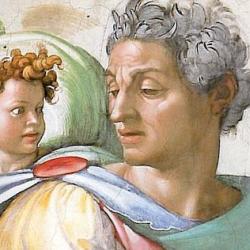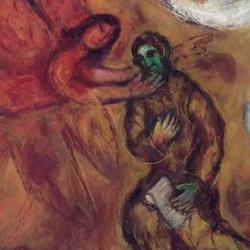INTRODUCTION
Assyria threatened, and in response the kings of Israel and Aram formed an anti-Assyrian alliance and tried to force Ahaz of Judah to join them. But the real threat to Judah was her own unbelief.THE
THE TEXT
“Now it came to pass in the days of Ahaz the son of Jotham, the son of Uzziah, king of Judah, that Rezin king of Syria and Pekah the son of Remaliah, king of Israel, went up to Jerusalem to make war against it, but could not prevail against it . . . .” (Isaiah 7:1-25).
ISAIAH AND AHAZ
The invasion by Aram and Israel devastated Judah (2 Chronicles 28:5-8), but they were not able to take Jerusalem. Ahaz faced a choice, one that would determine not only his own future but the future of the house of David (cf. Isaiah 7:2, 13, 17): He could trust Yahweh, or he could play power politics. Isaiah met with the king, as Moses met with Pharaoh, by a river (7:3; cf. Exodus 7:15; 8:20), and offered the king assurances and warnings. Smoldering firebrand Rezin was head of Aram, Remaliah head of Ephraim, and Ahaz was supposed to draw the conclusion that King Yahweh is head of Jerusalem who would frustrate plots against Judah (Isaiah 7:4-9). Isaiah’s message is also a threat: Ephraim has only a half-century of life left, and if Ahaz does not stand in faith, his house will not stand (cmp. vv. 8b, 9b). In the event, Ahaz appealed to Assyria for help (cf. 2 Kings 16:5-9). This was apostasy: Ahaz found Assyria more trustworthy than Yahweh.
IMMANUEL AS THREAT
Yahweh offered Ahaz a momentous sign, but Ahaz refused, covering his unbelief in piety (Isaiah 7:10-12). Signs can predict before the fact, or confirm after the fact (cf. Exodus 3:12). Isaiah’s sign was the latter sort. Even if the virgin conceived immediately, the child would be born after the immediate threat passed. Immanuel’s birth was in part a threatening sign. He would eat the food of a decimated remnant (v. 15 with v. 22), and his appearance confirmed that the Assyrians who swarmed into Judah were sent by Yahweh (vv. 17-19). With Immanuel’s coming, the house of David would know that Assyria was Yahweh’s razor, shaving away all the glory-hair of His people (v. 20). “Briars and thorns” (three times, vv. 23, 24, 25) will cover the land, a wasteland instead of a garden and pasture.
IMMANUEL AS PROMISE
But the sign also contained a note of hope. The very name “Immanuel” showed that the child was Yahweh’s presence among His people. Though overrun with Assyrians, the land belongs to Immanuel (8:5-8). As this section of Isaiah continues, the figure of Immanuel merges into the figure of the future Davidic King, who would be Mighty God and Prince of Peace (9:6) and whose Spirit-inspired reign would bring righteousness and peace (11:1-10). The Immanuel promise is a promise of a divine King, a divine Messiah, both “God with us” and the “shoot from Jesse.”
SIGN OF THE VIRGIN
The word Isaiah uses for “young woman” ( alma ) is the one Hebrew word that connotes all that Yahweh’s sign means to convey – the girl is of marriageable age, yet unmarried (cf. Genesis 24:14-16, 43), that is, a virgin, as Matthew explicitly says (Matthew 1:23). Yahweh has offered a sign that is “deep as Sheol or high as heaven” (Isaiah 7:11), that that is what He gives. Not only does the virgin conceive, but the virgin bears God so that God may be with us, with us to the end of the age.










